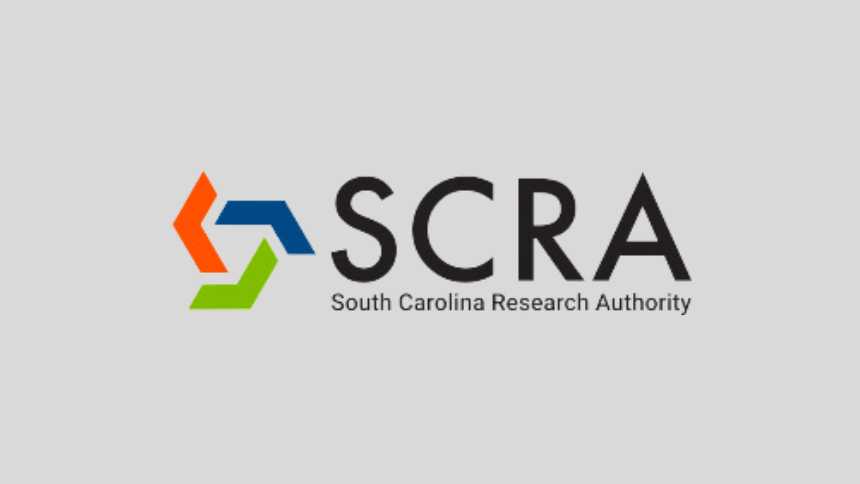
South Carolina’s Research Authority has a number of initiatives underway
They range from the long-established SC Launch program to participation on two NSF Engines teams and work with SCbio in the Palmetto State's fastest-growing industry sector.
There’s a lot going on at the South Carolina Research Authority (SCRA) as we learned during a lunch discussion earlier this summer with Bob Quinn, the nonprofit’s Executive Director.
Our time overlapped briefly at Oak Ridge National Laboratory – he was leading commercialization efforts for the lab in mid-2004 when I joined the Technology Transfer and Economic Development directorate after retiring from the University of Tennessee. Quinn was a 26-year executive with Battelle Memorial Institute and its affiliated companies before being named as SCRA’s Executive Director seven years ago. We continue to stay in touch and had the opportunity to catch up during a visit to the Charleston area.
Much like Launch Tennessee but considerably older, SCRA was chartered in 1983 by the state legislature to:
- Support entrepreneurs and technology start-ups that are on a strong growth track through grant funding, coaching, and investing via SC Launch Inc., SCRA’s investment affiliate;
- Accelerate academic research and its commercialization through grant funding and coordination of resources to ensure developments meet the needs of South Carolina’s industry;
- Connect those industries to entrepreneurs and innovators through matchmaking opportunities and funding that promote growth, and fund relocation costs for technology-based companies moving to the Palmetto State; and
- Provide more than 1.35 million square feet of lab and administrative space for technology start-ups and academic institutions.
Probably the best-known program is SC Launch which Quinn said is “frequently the first (outside) investor” in a start-up. “We bridge over the Valley of Death.” Since it was created in 2006, SCRA and SC Launch, Inc. have invested $42 million in tech start-ups and awarded another $22 million in grants. This has led to more than $2.6 billion in follow-on funding from venture capitalists and others. It is operated as an evergreen fund, meaning proceeds from exits are plowed back into SC Launch, Inc.’s coffers to make new investments in promising start-ups.
“We are also part of two NSF Engines teams,” Quinn told us, referencing the announcement of 44 development awards that the National Science Foundation made in mid-May. One titled “Clean Carolinas” is led by the University of North Carolina Charlotte, and SCRA is the lead organization in South Carolina. The other, named the “South Coast Regional Innovation Engine: Cybersecurity Solution Solutions for the Maritime Transportation Ecosystem,” is led by the University of South Carolina (USC) Beaufort.
Every state wants to leverage the technologies coming out of its universities, and SCRA is no exception. Quinn says the organization has modified its “SCRA-Academia Collaboration Team” (SACT) program for the future. Now, there are two solicitations having separate eligibility requirements. One – the Lab to Market track – is for Clemson, Medical University of South Carolina (MUSC), and USC as lead applicants. It is designed to help them accelerate the path to market of university-owned technology to generate tangible solutions that have the potential to create lasting economic and societal benefits.
“Last time, the three research universities competed against each other for funding,” Quinn explained. The new framework calls for each institution to run its own competition and decide the winner. There will be three awards totaling up to $860,000 each.
The second component of the SACT program is the Capacity Building Track. It is focused on all other institutions of higher education in the Palmetto State and is intended to help them build capacity for fundamental outcomes in technology development and commercialization at their institutions.
SCRA is also working with SCbio to grow what Quinn says is the “fastest-growing (industry) sector in South Carolina.” The sector is exploding thanks to a combination of major recruitments and generic growth. For the first time ever, SCRA, SCbio, and others collaborated on an exhibit during the recent Bio International Convention in Boston with some 40 South Carolinians attending.
To support the sector’s growth, SCRA also made a major commitment in leasing a portion of the recently completed 22 WestEdge building near MUSC and had it fully subleased before the space was even ready for occupancy. That’s 20,000 square feet of lab and office space.
“One-fifth of the member companies are in the life science sector,” Quinn explains.
Other initiatives include participation in the:
- Center of Resilience Excellence South Carolina (CORE SC), a consortium founded by the College of Charleston, the South Carolina Aquarium, and Charleston County Government and focused on establishing best practices for statewide resilience and sustainability. SCRA staff member Catherine Hayes now serves as Executive Director of CORE SC. One goal of the consortium is the establishment of a NASA research center in the state;
- Leading the development and implementation of the State Science and Technology Plan; and
- Partnering with the SC Department of Commerce on incentives geared to tech-based businesses.
What’s the secret for SCRA’s success?
“It’s timing,” Quinn says, adding, “It’s seeds planted years ago that are germinating.”
Like what you've read?
Forward to a friend!

